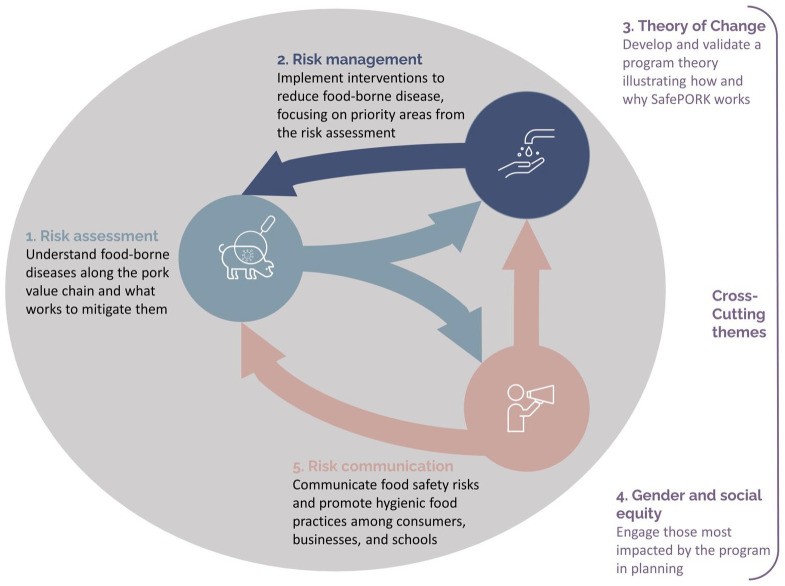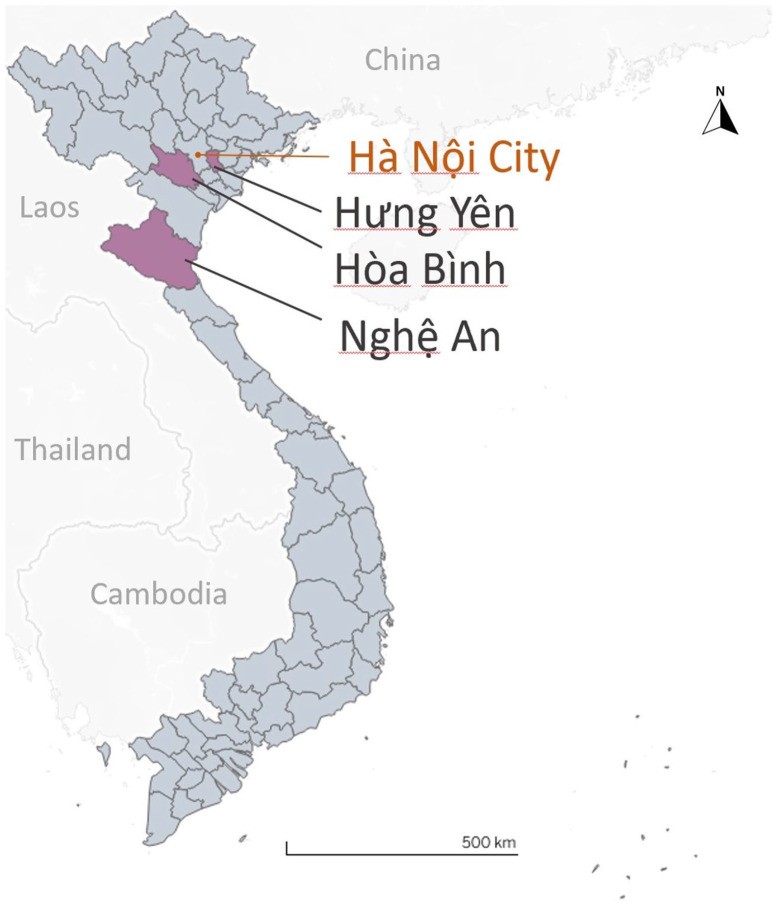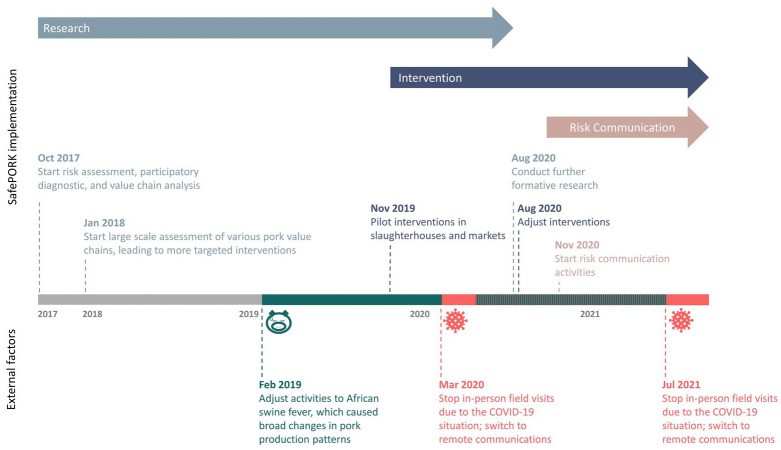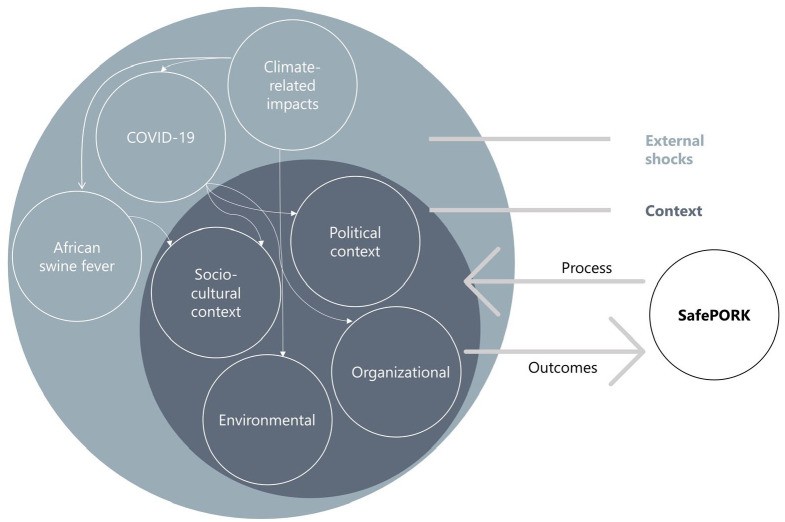Are you planning a trip to Vietnam and interested in understanding the lives of the local farmers? SIXT.VN provides valuable insights into the agricultural landscape of Hung Yen, helping you connect with the heart of Vietnamese culture. Discover the challenges faced by farmers in Hung Yen due to weather patterns and market fluctuations, and how these factors impact their daily lives. Explore Vietnam with SIXT.VN, where culture meets convenience.
1. What are the Primary Challenges Faced by Farmers in Hung Yen?
The primary challenges faced by farmers in Hung Yen revolve around unpredictable weather patterns and unstable market prices, affecting crop yields and income stability. These challenges are further compounded by the increasing impacts of climate change, leading to a need for adaptive strategies and resilient agricultural practices.
1.1 Weather Challenges
Farmers in Hung Yen province encounter significant difficulties due to the region’s climate. These challenges are intensified by broader climate change impacts, which include:
- Seasonal Variations: The province experiences distinct wet and dry seasons, impacting planting and harvesting schedules.
- Extreme Weather Events: Typhoons and floods are common, causing extensive damage to crops and infrastructure.
- Temperature Fluctuations: Unpredictable temperature changes can affect crop growth and increase the risk of diseases.
According to a report by the Food and Agriculture Organization (FAO), climate change is exacerbating these weather patterns, leading to more frequent and intense extreme weather events. This makes it increasingly difficult for farmers to plan and manage their crops effectively.
1.2 Market Price Instability
Market price instability is a major concern for farmers in Hung Yen, who often depend on local and regional markets to sell their produce.
- Fluctuating Demand: Changes in consumer demand can cause prices to rise and fall unpredictably.
- Competition: Competition from other agricultural regions can drive down prices.
- Lack of Market Information: Farmers may not have access to real-time market information, putting them at a disadvantage.
A study by the Vietnam National University of Agriculture found that lack of market information and poor infrastructure contribute to the instability of agricultural prices, making it difficult for farmers to earn a stable income.
2. How Does Weather Impact Farming Practices in Hung Yen?
Weather conditions significantly influence every aspect of farming practices in Hung Yen, from planting to harvesting, requiring farmers to adapt constantly to ensure viable yields. SIXT.VN can assist you in understanding these adaptations and their implications on local life during your travels.
2.1 Impact on Crop Selection
Weather patterns dictate which crops can be grown successfully in Hung Yen.
- Rice Cultivation: The wet season is essential for rice cultivation, the primary crop in the region.
- Vegetable Farming: Certain vegetables thrive during the drier months, providing an alternative source of income.
- Fruit Orchards: Farmers also grow fruits like longan and lychee, which require specific temperature conditions to flourish.
The selection of crops is a critical decision that farmers must make each season, balancing the potential for high yields with the risk of weather-related losses.
2.2 Seasonal Planting and Harvesting
The timing of planting and harvesting is crucial to maximizing crop yields.
- Wet Season Planting: Rice is typically planted at the beginning of the wet season to take advantage of the abundant rainfall.
- Dry Season Harvesting: Harvesting occurs during the dry season to prevent spoilage and ensure quality.
- Adaptive Scheduling: Farmers must adjust their planting schedules based on weather forecasts to avoid potential damage from floods or droughts.
2.3 Irrigation and Water Management
Effective water management is essential to mitigating the impact of droughts and floods.
- Irrigation Systems: Farmers use irrigation systems to supplement rainfall during dry periods.
- Drainage Systems: Drainage systems help to prevent waterlogging and reduce the risk of crop damage during floods.
- Water Conservation: Implementing water conservation techniques is vital for sustainable agriculture in the region.
2.4 Pest and Disease Management
Weather conditions can also affect the prevalence of pests and diseases, requiring farmers to implement appropriate management strategies.
- Increased Humidity: High humidity levels during the wet season can promote the spread of fungal diseases.
- Pest Infestations: Changes in temperature and rainfall can lead to increased pest infestations.
- Integrated Pest Management: Farmers use integrated pest management techniques to minimize the use of pesticides and protect the environment.
 Rice paddies in Hung Yen, Vietnam, showcasing the region's primary agricultural activity
Rice paddies in Hung Yen, Vietnam, showcasing the region's primary agricultural activity
3. How Do Market Prices Affect Farmers’ Livelihoods?
Market prices directly affect the income and financial stability of farmers in Hung Yen, making price fluctuations a critical determinant of their overall well-being. With SIXT.VN, understand how these economic factors impact the local communities you visit.
3.1 Income Dependency
Most farmers in Hung Yen rely on the sale of their crops as their primary source of income.
- Vulnerability to Price Drops: A sudden drop in market prices can significantly reduce their earnings.
- Limited Savings: Many farmers have limited savings to cushion the impact of price fluctuations.
- Debt Burden: Some farmers may take out loans to finance their farming operations, increasing their vulnerability to financial hardship.
3.2 Production Costs
Fluctuations in market prices can also affect the profitability of farming operations.
- Input Costs: Rising input costs, such as fertilizers and pesticides, can reduce profit margins.
- Transportation Costs: High transportation costs can make it difficult for farmers to compete in regional markets.
- Storage Costs: Storing crops to sell at a later date can also be expensive, reducing overall profits.
3.3 Market Access
Limited access to markets can further exacerbate the impact of price instability.
- Lack of Infrastructure: Poor transportation infrastructure can limit farmers’ ability to reach distant markets.
- Middlemen Influence: Middlemen often control access to markets, taking a significant share of the profits.
- Direct Sales: Some farmers have started selling directly to consumers to bypass middlemen and increase their earnings.
3.4 Government Support and Policies
Government support and policies play a critical role in stabilizing market prices and protecting farmers’ livelihoods.
- Price Support Programs: Price support programs can help to ensure that farmers receive a fair price for their crops.
- Subsidies: Subsidies can help to reduce input costs and increase profit margins.
- Market Information: Providing farmers with access to real-time market information can help them make informed decisions about when and where to sell their crops.
4. What Measures Are Farmers Taking to Adapt to These Challenges?
To cope with the challenges posed by weather and market prices, farmers in Hung Yen are adopting various adaptive strategies, improving their resilience and ensuring their livelihoods. With SIXT.VN, learn about these innovative approaches and how they contribute to sustainable tourism and local economy.
4.1 Adapting to Weather Variability
Farmers are implementing several strategies to mitigate the impact of weather variability.
- Crop Diversification: Growing a variety of crops can reduce the risk of total crop failure due to adverse weather conditions.
- Climate-Resilient Varieties: Planting climate-resilient crop varieties can help to withstand extreme weather events.
- Improved Water Management: Implementing efficient irrigation and drainage systems can help to conserve water and prevent waterlogging.
- Early Warning Systems: Utilizing weather forecasts and early warning systems can help farmers prepare for potential weather-related disasters.
4.2 Coping with Market Price Fluctuations
Farmers are also adopting strategies to cope with market price fluctuations.
- Collective Marketing: Forming cooperatives and engaging in collective marketing can increase bargaining power and improve access to markets.
- Value Addition: Processing crops into value-added products can increase their market value and reduce dependence on raw crop sales.
- Direct Marketing: Selling directly to consumers can bypass middlemen and increase profits.
- Contract Farming: Entering into contracts with buyers can guarantee a stable price for their crops.
4.3 Sustainable Agricultural Practices
Farmers are increasingly adopting sustainable agricultural practices to protect the environment and improve long-term productivity.
- Organic Farming: Practicing organic farming can reduce the use of synthetic inputs and promote soil health.
- Integrated Farming Systems: Integrating crop and livestock farming can improve resource utilization and reduce waste.
- Agroforestry: Planting trees alongside crops can provide shade, improve soil fertility, and reduce erosion.
4.4 Technological Innovations
Technological innovations are playing an increasingly important role in helping farmers adapt to weather and market challenges.
- Precision Farming: Using precision farming techniques can optimize resource use and improve crop yields.
- Mobile Technology: Mobile technology can provide farmers with access to weather forecasts, market information, and agricultural advice.
- Remote Sensing: Remote sensing technology can monitor crop health and identify potential problems early on.
 A farmer tending to his vegetable garden in Hung Yen, showcasing crop diversification
A farmer tending to his vegetable garden in Hung Yen, showcasing crop diversification
5. What Role Does the Government Play in Supporting Farmers?
The government plays a crucial role in supporting farmers in Hung Yen through policies and programs aimed at stabilizing markets, providing financial assistance, and promoting sustainable agricultural practices. Discover the government’s initiatives and their impact on local farming communities with SIXT.VN.
5.1 Policy and Regulatory Framework
The government establishes policies and regulations to support the agricultural sector.
- Agricultural Land Use: Regulations on agricultural land use aim to protect farmland from conversion to other uses.
- Food Safety Standards: Food safety standards ensure that agricultural products meet quality and safety requirements.
- Trade Policies: Trade policies can affect the competitiveness of Vietnamese agricultural products in international markets.
5.2 Financial Assistance Programs
The government provides financial assistance to farmers through various programs.
- Credit Programs: Subsidized credit programs help farmers access loans at affordable interest rates.
- Insurance Schemes: Agricultural insurance schemes protect farmers against losses due to natural disasters and other risks.
- Disaster Relief Funds: Disaster relief funds provide financial assistance to farmers affected by floods, droughts, and other calamities.
5.3 Infrastructure Development
Investment in infrastructure is essential for supporting agricultural development.
- Irrigation Systems: The government invests in irrigation systems to improve water management and increase crop yields.
- Transportation Networks: Improving transportation networks can facilitate market access and reduce transportation costs.
- Storage Facilities: Investment in storage facilities can help to reduce post-harvest losses and improve market stability.
5.4 Research and Development
The government supports research and development to promote sustainable agricultural practices.
- Agricultural Research Institutes: Agricultural research institutes conduct research on crop breeding, pest management, and other agricultural technologies.
- Extension Services: Extension services provide farmers with access to the latest agricultural information and advice.
- Technology Transfer Programs: Technology transfer programs help to disseminate new agricultural technologies to farmers.
5.5 Training and Education
The government provides training and education programs to improve farmers’ skills and knowledge.
- Agricultural Colleges: Agricultural colleges offer vocational training in various agricultural disciplines.
- Farmer Training Programs: Farmer training programs provide farmers with practical skills and knowledge on topics such as crop management, pest control, and marketing.
- Study Tours: Study tours expose farmers to best practices in other regions and countries.
6. What Are the Long-Term Prospects for Farmers in Hung Yen?
The long-term prospects for farmers in Hung Yen depend on their ability to adapt to ongoing challenges, embrace sustainable practices, and receive adequate support from the government and other stakeholders. With SIXT.VN, gain a deeper appreciation of the resilience and adaptability of Vietnamese farmers, contributing to a more meaningful and respectful travel experience.
6.1 Sustainable Agriculture
Adopting sustainable agricultural practices is essential for ensuring the long-term viability of farming in Hung Yen.
- Soil Conservation: Implementing soil conservation techniques can help to protect soil fertility and prevent erosion.
- Water Conservation: Conserving water resources is essential for mitigating the impact of droughts and ensuring water availability for future generations.
- Biodiversity Conservation: Protecting biodiversity can enhance ecosystem resilience and support sustainable agriculture.
6.2 Climate Change Adaptation
Adapting to climate change is crucial for protecting farmers’ livelihoods and ensuring food security.
- Climate-Resilient Crops: Planting climate-resilient crop varieties can help to withstand extreme weather events.
- Improved Water Management: Implementing efficient irrigation and drainage systems can help to conserve water and prevent waterlogging.
- Disaster Preparedness: Preparing for potential weather-related disasters can help to minimize losses and protect livelihoods.
6.3 Market Development
Developing markets for agricultural products is essential for increasing farmers’ incomes and improving their livelihoods.
- Value Chain Development: Developing value chains can add value to agricultural products and increase their market competitiveness.
- Market Linkages: Strengthening market linkages can improve farmers’ access to markets and reduce their dependence on middlemen.
- Branding and Promotion: Branding and promoting agricultural products can increase their market value and attract consumers.
6.4 Policy Support
Continued government support and policies are essential for promoting sustainable agricultural development.
- Investment in Infrastructure: Investing in infrastructure can improve market access and reduce transportation costs.
- Financial Assistance Programs: Providing financial assistance to farmers can help them invest in sustainable agricultural practices.
- Research and Development: Supporting research and development can promote technological innovation and improve agricultural productivity.
6.5 Community Empowerment
Empowering farming communities is essential for promoting sustainable agricultural development.
- Farmer Organizations: Supporting farmer organizations can increase their bargaining power and improve their access to resources.
- Education and Training: Providing farmers with education and training can improve their skills and knowledge.
- Access to Information: Ensuring access to information can help farmers make informed decisions about their farming operations.
7. What Role Does Tourism Play in Supporting Hung Yen Farmers?
Tourism can play a significant role in supporting farmers in Hung Yen by providing additional income streams and promoting local agricultural products.
7.1 Agritourism Initiatives
Agritourism initiatives can provide tourists with opportunities to experience farming firsthand.
- Farm Stays: Tourists can stay on local farms and learn about agricultural practices.
- Farm Tours: Guided tours can showcase agricultural operations and promote local products.
- U-Pick Farms: Visitors can pick their own fruits and vegetables, providing additional income for farmers.
7.2 Local Markets and Product Sales
Tourism can promote local markets and the sale of agricultural products.
- Farmers Markets: Farmers markets can provide a venue for local farmers to sell their products directly to tourists.
- Local Product Promotion: Promoting local agricultural products can increase their market value and attract consumers.
- Souvenir Sales: Tourists can purchase local agricultural products as souvenirs, providing additional income for farmers.
7.3 Culinary Tourism
Culinary tourism can showcase local cuisine and promote agricultural products.
- Farm-to-Table Restaurants: Restaurants that source their ingredients from local farms can promote local agricultural products.
- Cooking Classes: Cooking classes can teach tourists how to prepare local dishes using local ingredients.
- Food Festivals: Food festivals can celebrate local cuisine and promote agricultural products.
7.4 Cultural Exchange
Tourism can promote cultural exchange between tourists and local farmers.
- Cultural Tours: Guided tours can provide tourists with insights into local agricultural practices and traditions.
- Homestays: Staying with local families can provide tourists with opportunities to learn about local culture and support local communities.
- Volunteer Programs: Volunteer programs can provide tourists with opportunities to work on local farms and contribute to local communities.
7.5 Sustainable Tourism Practices
Sustainable tourism practices can minimize the negative impacts of tourism on the environment and local communities.
- Eco-Friendly Accommodations: Eco-friendly accommodations can reduce energy and water consumption and minimize waste.
- Responsible Tour Operators: Responsible tour operators can promote sustainable tourism practices and support local communities.
- Community-Based Tourism: Community-based tourism can empower local communities and ensure that they benefit from tourism development.
 SafePORK interventions in a traditional slaughterhouse, showcasing efforts to improve food safety
SafePORK interventions in a traditional slaughterhouse, showcasing efforts to improve food safety
8. How Can You Support Farmers in Hung Yen During Your Visit?
When planning your trip to Hung Yen, consider supporting local farmers through responsible tourism and mindful consumption. SIXT.VN provides services that encourage sustainable travel, ensuring your visit contributes positively to the local economy and community.
8.1 Choose Local Products
Opt for locally sourced products when purchasing food and souvenirs.
- Visit Local Markets: Explore farmers’ markets to buy fresh produce and support local growers.
- Dine at Farm-to-Table Restaurants: Enjoy meals at restaurants that prioritize locally sourced ingredients.
- Purchase Handicrafts Made from Local Materials: Look for souvenirs made from locally sourced agricultural products.
8.2 Engage in Agritourism Activities
Participate in agritourism activities to learn about farming practices and support local farmers.
- Stay at Farm Stays: Experience life on a local farm and learn about sustainable agriculture.
- Take a Farm Tour: Discover the inner workings of a farm and learn about the challenges farmers face.
- Volunteer on a Farm: Contribute your time and effort to help local farmers with their daily tasks.
8.3 Support Sustainable Tourism Initiatives
Choose tour operators and accommodations that prioritize sustainability.
- Select Eco-Friendly Accommodations: Stay at hotels and guesthouses that implement eco-friendly practices.
- Choose Responsible Tour Operators: Opt for tour operators that promote sustainable tourism and support local communities.
- Respect Local Customs and Traditions: Be mindful of local customs and traditions, and show respect for the local culture.
8.4 Educate Yourself and Others
Learn about the challenges farmers face and share your knowledge with others.
- Read About Local Agriculture: Research the agricultural practices and challenges in Hung Yen before your visit.
- Talk to Local Farmers: Engage in conversations with local farmers to learn about their experiences and perspectives.
- Share Your Experiences: Share your experiences and insights with friends, family, and other travelers to raise awareness about sustainable tourism and support local communities.
9. What Resources Are Available to Help Farmers in Hung Yen?
Various resources are available to help farmers in Hung Yen overcome the challenges they face, including government programs, NGOs, and international organizations.
9.1 Government Programs
Government programs provide financial assistance, training, and technical support to farmers.
- Agricultural Extension Services: Agricultural extension services offer advice and training on crop management, pest control, and marketing.
- Credit Programs: Subsidized credit programs provide farmers with access to loans at affordable interest rates.
- Insurance Schemes: Agricultural insurance schemes protect farmers against losses due to natural disasters and other risks.
9.2 Non-Governmental Organizations (NGOs)
NGOs work to improve the livelihoods of farmers through various initiatives.
- Sustainable Agriculture Projects: NGOs implement sustainable agriculture projects to promote environmentally friendly farming practices.
- Market Development Programs: NGOs develop market linkages to improve farmers’ access to markets and increase their incomes.
- Community Empowerment Initiatives: NGOs empower farming communities through education, training, and access to information.
9.3 International Organizations
International organizations provide financial and technical assistance to support agricultural development in Hung Yen.
- Food and Agriculture Organization (FAO): FAO works to improve food security and promote sustainable agriculture.
- World Bank: The World Bank provides loans and grants to support agricultural development projects.
- United Nations Development Programme (UNDP): UNDP works to promote sustainable development and reduce poverty.
9.4 Local Cooperatives
Local cooperatives provide farmers with collective marketing and purchasing power.
- Marketing Cooperatives: Marketing cooperatives help farmers to sell their products at fair prices.
- Purchasing Cooperatives: Purchasing cooperatives enable farmers to buy inputs at discounted prices.
- Credit Cooperatives: Credit cooperatives provide farmers with access to affordable loans.
9.5 Educational Institutions
Educational institutions provide training and research to support agricultural development.
- Agricultural Colleges: Agricultural colleges offer vocational training in various agricultural disciplines.
- Research Institutes: Research institutes conduct research on crop breeding, pest management, and other agricultural technologies.
- Extension Services: Extension services provide farmers with access to the latest agricultural information and advice.
10. Frequently Asked Questions (FAQs) About Farming in Hung Yen
Here are some frequently asked questions about the challenges faced by farmers in Hung Yen:
10.1 What are the Main Crops Grown in Hung Yen?
The main crops grown in Hung Yen include rice, vegetables, and fruits like longan and lychee.
10.2 How Do Weather Patterns Affect Rice Cultivation in the Region?
Weather patterns significantly affect rice cultivation, with the wet season essential for planting and the dry season for harvesting. Extreme weather events like floods and droughts can cause significant crop damage.
10.3 What Measures Are Farmers Taking to Adapt to Climate Change?
Farmers are adapting to climate change by diversifying crops, planting climate-resilient varieties, and improving water management techniques.
10.4 How Does Market Price Instability Impact Farmers’ Livelihoods?
Market price instability directly affects farmers’ incomes, making them vulnerable to financial hardship due to price drops and rising production costs.
10.5 What Role Does the Government Play in Supporting Farmers in Hung Yen?
The government supports farmers through policies, financial assistance programs, infrastructure development, and research and development initiatives.
10.6 How Can Tourism Support Local Farmers in Hung Yen?
Tourism can support local farmers through agritourism initiatives, promotion of local markets and products, and cultural exchange programs.
10.7 What Are Some Examples of Sustainable Agricultural Practices Used by Farmers?
Sustainable agricultural practices used by farmers include organic farming, integrated farming systems, and agroforestry.
10.8 What Resources Are Available to Help Farmers Overcome Their Challenges?
Resources available to help farmers include government programs, NGOs, international organizations, local cooperatives, and educational institutions.
10.9 How Can I Contribute to Sustainable Tourism in Hung Yen?
You can contribute to sustainable tourism by choosing local products, engaging in agritourism activities, and supporting eco-friendly accommodations and tour operators.
10.10 What Is the Long-Term Outlook for Farmers in Hung Yen?
The long-term outlook for farmers in Hung Yen depends on their ability to adopt sustainable practices, adapt to climate change, and receive continued support from the government and other stakeholders.
 A local market in Hung Yen, showcasing a variety of fresh produce and local products
A local market in Hung Yen, showcasing a variety of fresh produce and local products
By understanding the challenges and adaptations of farmers in Hung Yen, you can appreciate the depth of Vietnamese culture and contribute to sustainable tourism. SIXT.VN is committed to providing you with seamless travel experiences that connect you with the heart of Vietnam. Plan your trip with us and discover the beauty and resilience of Hung Yen.
Ready to explore the agricultural heartland of Vietnam? Visit SIXT.VN today to discover our comprehensive travel services, including:
- Personalized travel consultation: Tailored itineraries to immerse you in local culture.
- Reliable airport transfer: Start and end your journey with ease and comfort.
- Handpicked hotels: Choose from a variety of accommodations that suit your preferences and budget.
- Unique tours: Explore Hanoi and surrounding regions with our expert-led tours.
- Affordable flights: Find the best deals on flights to and from Vietnam.
Address: 260 Cau Giay, Hanoi, Vietnam.
Hotline/Whatsapp: +84 986 244 358
Website: SIXT.VN
Let SIXT.VN be your trusted partner in discovering the authentic beauty of Vietnam. Contact us today and start planning your unforgettable journey.



